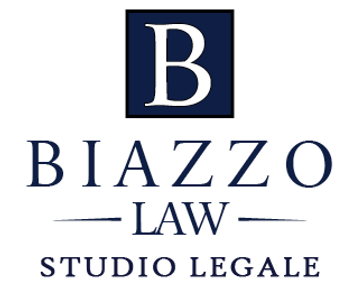Why a Pour-Over Will Is Critical to Activate and Complete Your Trust
- corey7565
- Oct 20
- 4 min read

1. It Transfers Remaining Assets Into Your Trust
Even the most diligent individuals sometimes forget to transfer new assets — like bank accounts, vehicles, or newly purchased property — into their trust. A pour-over will ensures these “stray assets” are eventually transferred (“poured over”) into the trust, activating full trust control after your passing.
2. It Completes the Legal Chain of Ownership
For your trust to operate fully, it must own your assets. The pour-over will ensures any assets still titled in your name are legally funneled into your trust, completing your estate plan.
3. It Provides a Probate Backup
Even if limited probate is required for the assets being transferred, your pour-over will keeps the process simple by directing everything to your trust — rather than through intestate succession or competing beneficiary claims.
4. It Protects Your Privacy and Intentions
Once the assets are in your trust, distribution happens privately, outside of court. Your pour-over will ensures that even last-minute or overlooked assets ultimately receive the same protection and treatment as the rest of your estate.
5. It Ensures Consistency Across States
If you own property in multiple states — for example, a home in Florida, a rental in North Carolina, or a vacation property in Colorado or Arizona — a pour-over will helps streamline your estate by consolidating ownership through your trust rather than triggering multiple probate proceedings.
How a Pour-Over Will and Trust Work Together
Estate Planning Goal | Role of Revocable Living Trust | Role of Pour-Over Will |
Avoid probate | Holds and distributes assets privately | Directs remaining assets to the trust |
Maintain control | Provides lifetime management flexibility | Ensures consistency after death |
Protect privacy | Keeps distribution out of public record | Minimizes probate disclosures |
Provide backup plan | Administers property owned by the trust | Catches assets left outside the trust |
Together, these documents form the foundation of a complete, legally enforceable estate plan.
Common Mistakes People Make Without a Pour-Over Will
Assuming the trust automatically includes everything.Assets must be actively transferred into the trust — titles, deeds, and accounts need updating.
Failing to update asset ownership after life changes.Marriage, divorce, real estate purchases, or business acquisitions can leave assets unaccounted for.
Not coordinating wills and trusts.Having only a will or only a trust can cause confusion, delays, and unintended outcomes.
Biazzo Law ensures that your trust and pour-over will are synchronized, comprehensive, and legally valid in your state of residence.
How Biazzo Law Helps You Protect Your Estate
At Biazzo Law, we combine transactional estate planning expertise with litigation insight, meaning we don’t just draft documents — we craft estate plans that work in real-world scenarios and hold up under legal scrutiny.
Our Services Include:
Drafting and funding revocable living trusts
Preparing pour-over wills and companion documents
Creating durable powers of attorney and healthcare directives
Coordinating multi-state property ownership and asset titling
Reviewing existing estate plans for gaps or inconsistencies
We represent individuals and families throughout Florida, North Carolina, South Carolina, Illinois, Colorado, Arizona, Washington, Indiana, Iowa, Missouri, and Oregon, offering both local attention and multi-state capability.
FAQs About Pour-Over Wills and Revocable Living Trusts
Is a pour-over will required if I have a trust?
Yes. A pour-over will ensures that any assets not already in your trust at the time of your death are transferred into it — making your trust fully effective.
Does a pour-over will avoid probate?
It can minimize probate, but if assets are left outside your trust, a limited probate process may still be required to transfer them. Once transferred, those assets are governed by your trust privately.
Can I just have a trust without a will?
You could, but it’s risky. Without a pour-over will, any property not in your trust could be distributed under state intestacy laws — potentially to unintended beneficiaries.
Can a pour-over will handle assets in different states?
Yes. That’s especially important for clients with property across states like Florida, North Carolina, Colorado, Arizona, and Oregon. It consolidates estate administration and ensures all assets ultimately flow into your trust.
Does Biazzo Law help with both wills and trusts?
Absolutely. We provide full-service estate planning — including wills, trusts, powers of attorney, and healthcare directives — for individuals, families, and business owners across our multi-state coverage areas.
Build a Complete Estate Plan with Biazzo Law
A revocable living trust provides flexibility and privacy, but it’s only as effective as the pour-over will that supports it. Without that companion document, your trust could remain incomplete — leaving assets exposed to probate or unintended distribution.
At Biazzo Law, we help you craft an estate plan that’s comprehensive, coordinated, and compliant, ensuring your wishes are honored and your family is protected — wherever life takes you.
📞 Contact Biazzo Law today or visit BiazzoLaw.com to schedule your confidential estate planning consultation.
Biazzo Law — Complete Estate Planning. Multi-State Experience. Peace of Mind that Lasts.
